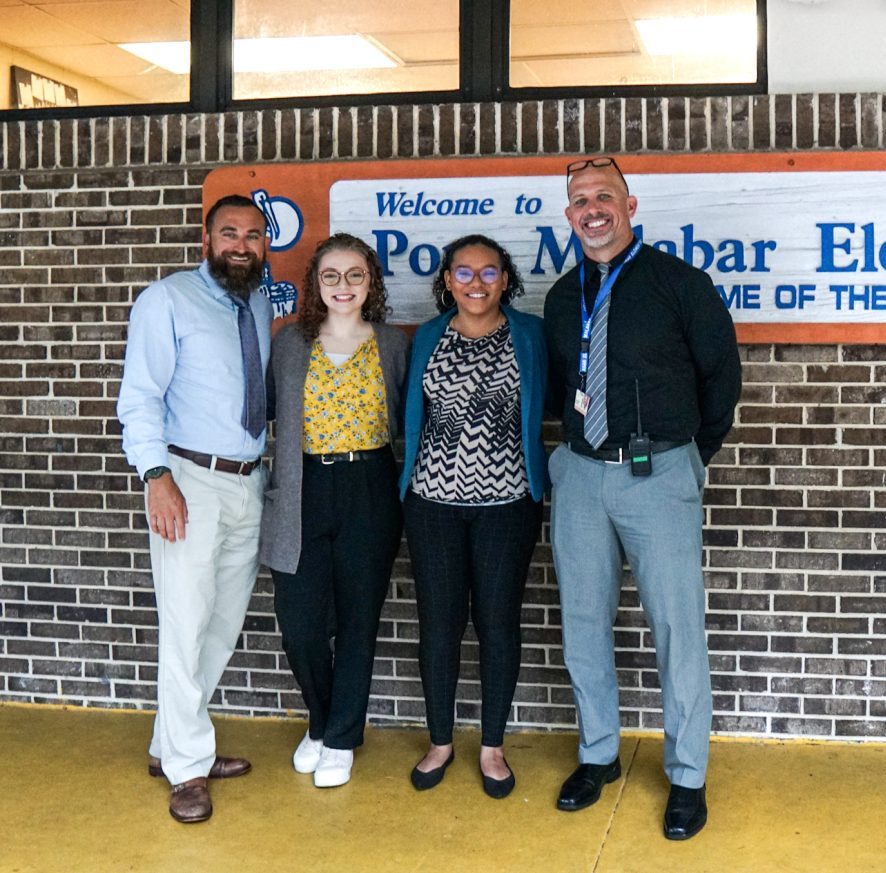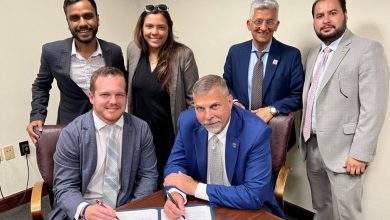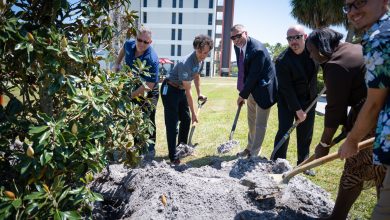Doctoral Students in Clinical Psychology Working with BPS in Innovative Partnership
New Program Developed by School of Psychology's Patrick Aragon
Even for adults possessed with bountiful vocabularies and the ability to look within themselves, talking about mental health can be difficult. For a third grader the challenges deepen, even as the trauma – from the loss of family members to severe bullying – is as real and pure as in anyone far older.
Thankfully, people of all ages benefit from interacting with those who listen, and Isobel Avento and Cassandra Clayton, both third-year students in Florida Tech’s clinical psychology Psy.D. doctoral program, are doing just that at a Brevard school.
“Even though mental health is becoming less stigmatized in today’s society, it is still difficult to talk about for kids because they’re still learning how to be their own person,” Avento said. “With that in mind, working as a counselor at an elementary school and giving them an outlet for their mental health concerns can make an enormous difference in these kids’ lives.”
A new program developed by Patrick Aragon, Psy.D., MBA, an assistant professor and assistant director of clinical training at Florida Tech’s School of Psychology, and Port Malabar Elementary School Principal Greg Rubick, is providing students with skilled listeners and helpful therapy for several hours each week in the form of visits from Avento and Clayton.

The need is critical as Brevard Public Schools and districts nationwide deal with a shortage of school counselors. Importantly, the program also provides Aragon’s students with participation in services with children, bridging the gap between clinical psychology and school psychology.
“While in schools we often focus on behavioral challenges and learning disorders,” Aragon said, “it is hoped that creating this bridge will address the mental health challenges that are an obvious extraneous variable to the learning environment for a lot of these kids.”
Avento and Clayton have a caseload of four to five students whom they see every week. The students are referred to them by the district’s counselors, and their parents must approve, as well.
“We assessed our student population and put together a small caseload based on the students we felt had the highest need,” Rubick said.
After several weeks Avento and Clayton will engage with a new group after making recommendations for the students they had been seeing. Some may progress to more long-term treatment at Florida Tech’s Community Psychological Services or another provider.
“We’ve had a couple of teachers stop our students and say, ‘Hey, my student has been so much better this week,’ so we’re already getting some good feedback,” Aragon said.
Aragon, a licensed psychologist, supervises Avento and Clayton, helping them process their work and deepening their on-the-job learning. “We do some reading and talk about each of the cases and make sure that they know what’s going on,” he said.
Clayton said she and Avento talk to the school counselor, getting insights into the children’s’ challenges at school and home, and then craft therapy sessions to address each child’s unique needs. Topics include enhancing emotional regulation, fostering self-esteem, improving communication skills, and promoting overall emotional well-being.
“One aspect I find particularly gratifying is the chance to equip children with therapeutic skills at an early stage before they encounter the heightened stressors often associated with middle and high school,” Clayton said. “It’s fulfilling to contribute to the well-being and resilience of children during this pivotal stage of their development.”
Rubick added, “This early intervention creates a butterfly effect, so these students have skills going forward.”
The Florida Tech team is developing ways to expand the program given its early success. Clayton and Avento will convene a four-week anti-bullying group session for Port Malabar 6th graders, and Brevard Public Schools and Florida Tech agreed to expand the program to a yet-to-be-determined high school starting in the fall.
All of this is just the start of Avento and Clayton’s work with children.
“This work aligns exceptionally well with my passions and is truly an invaluable experience,” Avento said. “Once I graduate, I’d like to continue working with kids and expand my experiences by providing interventions for youth involved with the justice system and survivors of childhood trauma.”
Clayton said, “Ultimately, my overarching goal is to deliver psychological services to children and families, with a commitment to broadening access to psychological resources within underserved and marginalized communities. I anticipate the opportunity to contribute meaningfully to diverse communities where resources and opportunities are often limited.”





